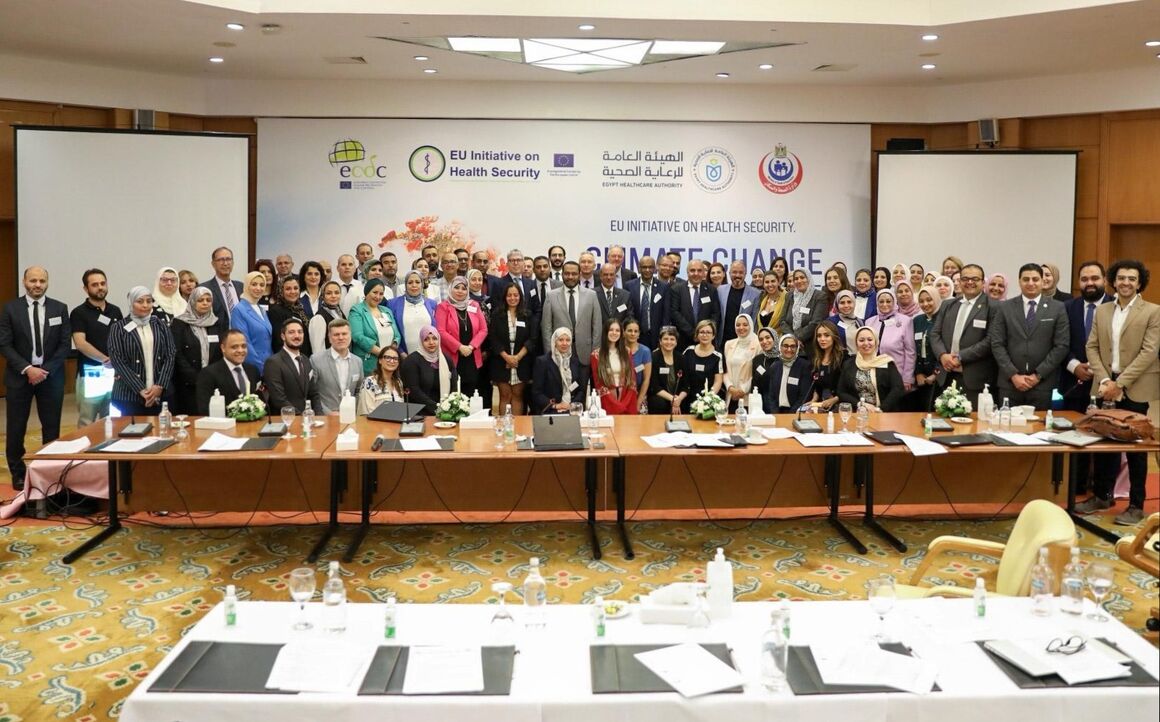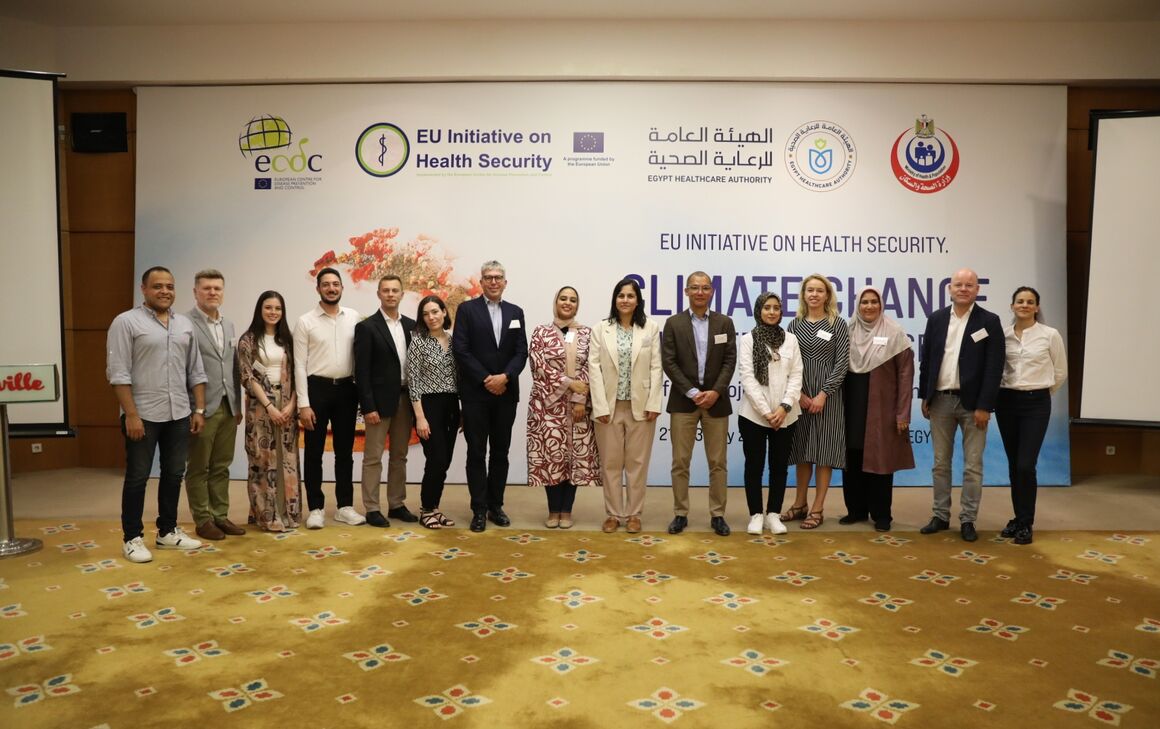ECDC and Egypt organise workshop addressing the impact of climate change on infectious diseases
On 21–23 May 2024, the European Centre for Disease Prevention and Control (ECDC) in collaboration with Egypt’s Ministry of Health and Population organised a workshop addressing the intersection of climate change and infectious diseases.

Sharm el-Sheik, Egypt, 23 May 2024
Climate change is an increasingly significant threat to health security, and an important driver behind shifting patterns of infectious disease transmission. As a result, adaptation and preparedness strategies are needed to prepare for and respond to the new and anticipated challenges to public health.
Under the auspices of the EU Initiative on Health Security, a broad range of experts from the EU and the EU’s Southern Neighborhood region (SNP) gathered in Sharm el-Sheik, Egypt, to analyse climate change and its impact on disease transmission patterns. A total of 95 participants, including representatives from 7 SNP countries, took part in workshop.
Abdel Ghaffar, Egyptian Minister of Health and Population, said:
"As we confront the growing threat of climate change on public health, collaboration and knowledge exchange are vital. This workshop, organised jointly by the European Centre for Disease Prevention and Control and the Egyptian Ministry of Health and Population, provided a crucial platform for experts to analyse and address the intersection of climate change and infectious diseases. With nearly half the global population residing in vulnerable regions, urgent action is required to strengthen our health systems and communities against these challenges. Through productive discussions and joint efforts, we are now better prepared to tackle these pressing issues and foster a more resilient public health landscape going forward."
Over three intensive days, participants and additional partner organisations, including Africa CDC and the WHO Regional Office for the Eastern Mediterranean, engaged in fruitful discussions, exchanging experiences and best practices and identifying key risks, vulnerabilities, and strategies for preparedness, response, and climate-sensitive early warning surveillance systems. The workshop targeted professionals from various levels of national and sub-national health sectors, ensuring a multidisciplinary, One Health perspective.
With an agenda covering topics ranging from the impacts of climate change on disease transmission to vulnerability and adaptation assessments, participants explored historical perspectives, case studies, and future projections. Keynote speakers shared insights, while interactive sessions facilitated vibrant exchanges of knowledge and ideas.
The workshop began with an introductory session chaired by the Egyptian Ministry of Health and Population, setting the scope and objectives for the workshop. The second day featured discussions on climate-sensitive disease epidemiology and surveillance, along with parallel group sessions addressing vulnerabilities. Attendees also visited the Sharm El-Sheik International Hospital, renowned for its green and eco-friendly initiatives. The final day saw groups identifying preparedness and adaptation strategies, culminating in parallel group presentations and concluding remarks by the Egyptian hosts.
By fostering collaboration and knowledge exchange, the workshop equipped attendees with the tools and insights necessary to confront the pressing challenges posed by climate change and infectious disease transmission.

EU Initiative on Health Security
The EU Initiative on Health Security aims at protecting EU neighbouring countries against cross-border health risks posed by communicable diseases. It seeks to strengthen the institutional capabilities of partner countries to effectively counter health threats. Additionally, the initiative facilitates cross-border collaboration between the EU and its partners by promoting the exchange of information, best practices, and lessons learned in addressing common health security challenges.







